Flooding have been treading the waters of an unexpectedly deep and dark Kansas City area DIY scene. Their 2023 album, SILHOUETTE MACHINE, slowly gathered widespread attention as the band played more shows and people continued to talk about them. The band has fit into the general slowcore revival that ignited in the early 2020s but have gained appreciation for their ventures outside of the genre’s typical features, building on the sound with long, emotional narratives in their songs that hover in murkiness, flow into guttural screams, and seep back again.
Vocalist and guitarist Rose Brown discussed the band’s new EP, OBJECT 01 just ahead of its release earlier this summer. Here, she discusses the change in approach and sound from the band’s previous albums, along with some of the environmental factors of Kansas City that influenced and honed Flooding’s music. She called in before she went off to mix some new songs for her other project Window Seat.
How did your first project, Window Seat, bleed over into the start of Flooding?
Rose Brown: Window Seat started when I was, like, 19. I wrote a couple songs that I thought were good enough to record, so I bought a microphone and a little interface thing and recorded everything myself. It was easy to do since it was literally just acoustic guitar and vocals.
I did a couple EPs under that name, but then I started writing some music that felt a little bit different, which ended up being the Flooding self-titled album. Originally, I was writing those for Window Seat, but I figured it’d be cooler as a full band type of deal, so that’s how that started.
Originally, Flooding was from Lawrence, Kansas. What was it like starting in the scene there?
Rose: It was really fun. When we started, we were just coming out of COVID and there were a lot of bands really wanting to get started again, so it felt kind of like a renaissance for the music scene there, so we just wanted to be a part of that.
Did you grow up in Lawrence, or did you just go there for college?
RB: I went there for college, but I grew up in the Kansas City area, so I’ve always lived around here.
When Flooding moved from Lawrence to Kansas City, was it like a return to home? What garnered that move?
RB: I wanted to be more involved with the Kansas City scene, because I felt like we fit in a lot more over there and there was a lot more going on. Right now, I live very close to the town that
I grew up in there, so it does kind of feel like I’m moving back to my hometown, but I’m definitely discovering a lot more about the city than when I lived here. It’s been really nice.
What specific thing about the Kansas City scene did you want to return to and be a part of again?
RB: There was just a lot more heavy music happening, and at the time I felt like we fit in a lot more with that, but I think the scene really goes both ways. Lawrence and Kansas City have some similarities and some crossovers. They’re just not entirely separate.
You’ve played at Howdy and Farewell before. What are your thoughts on their current tax hike situation?
RB: It’s messed up, it sucks. I’ve been trying to get us a show there, so we can hopefully help them out a little bit. It’s really sad to hear, but that’s how it is all over Kansas City with small businesses. They’re trying to push them out like that, and it’s pretty sad.
It’s like the city is getting greedy. It’s like a shakedown in a sense, with how much they’re trying to demand from small business owners.
RB: I think it’s especially crazy for that to happen to Howdy, because it’s in the middle of nowhere. It’s in this very industrial district, and it’s, like, what do you guys want with this district? It seems like with a lot of other instances, it’s been, like, replacing a lot of the small businesses with more corporate businesses. But it’s, like, what would even go there if that place were vacant? I don’t think anything else would be able to exist there, so it’s crazy.
Do you think the general trend is that the city has been wanting to make things more corporate, and stamp out DIY and the soul from the people that actually live there?
RB: That’s definitely how Kansas City has been for a really long time. There’s a lot of really horrible gentrification and redlining history in Kansas City, and you can really see it in the Plaza District, for example. When I was growing up, it was like a shopping district that used to be pretty much all small local businesses and cute little boutiques and stuff. Now, it’s just, like, Banana Republic, Forever 21, H&M, and that’s really sad to see too.
Does it feel like with the way the city has handled these things that it’s killing the culture, or moving in that direction?
RB: Yeah, but I think that people still find a way. There’s still a lot of really cool things happening regardless. I think that just because one hub for DIY music is struggling, it doesn’t mean that is the end. We love Farewell and Howdy, and that is such a quintessential spot, but I think if that place went down, I think the people who run it could find a way to keep doing it some other way.
It’s like no matter what, you feel like people are going to be stubborn and find a way to keep doing what they want to do?
RB: I think especially now, with the shit that’s happening in the world, and the direction that the government is moving, what we have with our community is the only thing that we can rely on. We have to double down on that shit.
So, as an example, if the Kansas City DIY scene and community lost Howdy and Farewell, they wouldn’t be crushed by the city government, but find a new rally point?
RB: Yeah, I think it will always still exist in other ways.
There are a few other Kansas City area slowcore bands you’ve played with, Nightosphere and Abandoncy. Do you think there’s something about the landscape or the environment of the area around Kansas City, or just that part of the country, that fosters this specific sound?
RB: Definitely in a subconscious way, because everything about your environment is going to affect your life and your brain, and the decisions you’re going to make creatively. Definitely on that level.
What specific parts of your environment touch the art and music you and other people around you make?
RB: I don’t know. Like, Kansas City is very spread out, and there’s a lot of blank space between different neighborhoods, so maybe that has something to do with it. I haven’t really thought philosophically about that, but definitely something that has to do with how much space there is, and how much highway we have to travel.
Do you feel like your music can be indicative of the spaciousness around you?
RB: For sure. I think with being in a smaller music scene too, there’s a lot less noise. There’s a lot less music around you that you can be influenced by. Somehow, for some reason, that has kind of created a Kansas City sound that I think is very heavy and dark, and I think that’s really cool. Definitely some slow, but heavy, bands around here.
What’s it been like becoming friends and coming up with some of these other bands?
RB: It’s honestly been so awesome. Clare from Nightosphere and Faith from Virga, which are a band from Lawrence, they have both become some of my best friends through music, and that’s been such a great experience to have.
It’s really great to have some comradery with other women who make music in the scene as well. Because I think the type of music we all make, it’s like there’s not a lot of women making that kind of music. To be able to have that and stick together is really great.
I think just making music in general and learning how to perform has really affected my life, cause it’s like the more you do it, the less you really give a shit about what everyone thinks and the more confidence you get from it. That will seep into the rest of your life. I feel like I’ve really changed as a person because of that.
Kind of like with what you said before, it often feels like music scenes can feel very masculine or whatnot. Is that very off-putting and do you see trends of that changing?
RB: Yeah, I think it depends where you look, but there’s also something about a very, like, masculine music scene, or masculine genre, that makes me want to try my shot at creating it, which maybe is a little counter-productive, because then I end up being a little bit alone in that.
For example, I got really into the Kansas City hardcore scene when our second album came out, and I think you can tell from that album with the screamo and hardcore influences. But it also just made me feel kind of isolated to make that kind of music, so I’ve been leaning a lot more into pop elements with our new EP that’s coming out. It just feels a lot more like me, and I feel like I can do a lot more with my presence on stage and feel a lot more confident making that kind of music, so yeah.
How do you think it’d be best to go about participating in hardcore scenes to make it not so isolating for others?
RB: God, I don’t know. I think it has a lot to do with, not really the music, but the community around it and how you’re treating each other at shows, and stuff like that. Sometimes it feels like at hardcore shows, it feels like it’s not a safe place for me to be, which is sad.
There are a lot of bands who are more on the punk, not really the hardcore side, in Kansas City who are trying to change that. Like Violet Approach, I really like that band and they really care a lot about the safety aspect of their shows. So I feel like caring about stuff like that.
In cities like Iowa City and Minneapolis, it’s a lot more openly queer and welcoming. Does Kansas City feel very different from that?
RB: Specifically for hardcore, to me it feels very different from that, but if you look at other genres, they’re very much inclusive. If you just look at punk in general, it’s very queer, but that little subsect of hardcore punk is gonna be where you feel like an outsider.
I wouldn’t say my experience is the overall objectively correct experience of it, cause yeah, it really just depends on where you live. I’m sure there are hardcore communities out there that aren’t like that.
Do you have any favorite screamo or punk bands?
RB: I think what got me into wanting to incorporate some screamo into our music was Foxtails, and one of my favorite screamo bands is Blind Girls from Australia. It was so awesome, we got to play a festival with them and hang out with them all weekend. They’re so fucking cool. That’s also really cool, is getting to meet bands I feel really inspired by, and they end up feeling the same way about us.
Between your self-titled album and SILHOUETTE MACHINE, there was a change from more general slowcore to this push and pull between dreamy and crushing sections. With the new EP it sounds very different from the previous releases. You said earlier you were more comfortable with a more pop-like approach. Was that fully the direction you were trying to go with OBJECT 01?
RB: Well, I think I care more about the mood of the music and being able to give people a specific feeling through the music, rather than a specific sound or genre that I’m going for. I think that we’ve been trying to do that, just having some sort of catharsis through the music. You can see that through our whole discography in different ways, but for a while we were using those really extreme dynamics to make that happen. We’ve used kind of story-like, very linear song structures that have ended up being way too long of songs sometimes.
But I’ve just been really into pop music recently. I realized you can make all of what we were doing using pop structures and using hooks. I feel like that’s something we haven’t thought about with the songwriting in the past, but that can give you the same cathartic feeling as any of the other things that we do. It’s just like a different way of trying to achieve that.
I think that if you can write a good enough section that’s worthy of being repeated, you should probably repeat it. That was my thought process around that.
Between SILHOUETTE MACHINE to OBJECT 01, what are some of the lyrical themes that have carried over?
RB: There’s not actually a lot of similarity specifically between SILHOUETTE MACHINE and OBJECT 01. I think there’s honestly more similarity between our first album and OBJECT 01. In that first album there are a couple songs on there that sound pretty evil lyrically, and I’m kind of continuing that on this EP. It’s because it’s just fun, and it’s a fun juxtaposition, I guess, to have like a really fun song and then the lyrics are really horrible. I just think it’s kind of funny.
I don’t really plan on what is going to come out, because SILHOUETTE MACHINE is so, like, deeply personal and heartbreaking, and heavy. You can only do that for so long, you know? You can only perform that for so long before it just sucks to do. So, I just kind of wanted to go back to something that is a little less personal. I’m still talking about themes that are important to my life, but just from a different perspective that isn’t making a song from a victim point of view, just because I’m tired of listening to that. I don’t want to listen to that, so I don’t want to make that music.
Having to perform these songs often, you just want the action of performing to be more enjoyable?
RB: Yeah, for sure, like if you want to have fun when you’re performing, you should probably write fun songs. So, exactly, yeah. I want to be able to keep doing it sustainably, and enjoy what I’m doing, so I care more about that. I think you can produce things that are way better quality if you’re enjoying what you’re doing, rather than if you’re trying to maintain this, like, unachievable sense of personal sound with your music.
Playing more shows has been a thing you all have done recently, especially with a West Coast tour a couple months ago. How has that felt?
RB: It’s really fun, and it’s really gratifying. I love to see people out there at the shows.
When you say gratifying, does it feel like over the last four years you’ve been working up to this moment, and you finally achieved what you wanted?
RB: What I’ve always just wanted to do with the band is just make people feel seen, I guess, and make people feel less alone. So, when you see people out at the shows, it feels like that is what you’re actually achieving. It feels great having people come up, but it’s also, like, a little bit sad that a lot of people can relate to some of the things that I’m talking about, but it also makes me feel less alone when people come up and say that.
You can grab a copy of Flooding’s latest EP, OBJECT 1, over on Bandcamp!


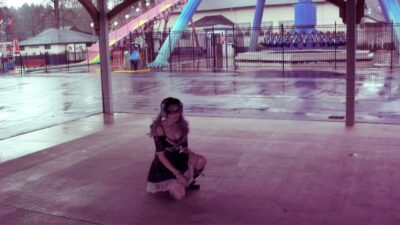
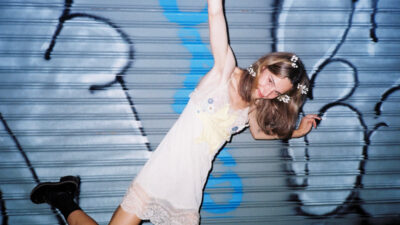
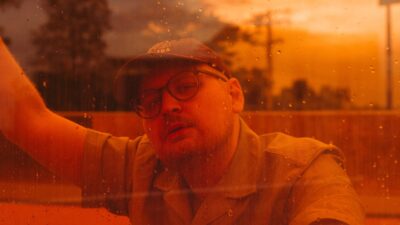
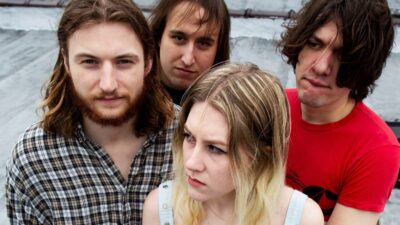


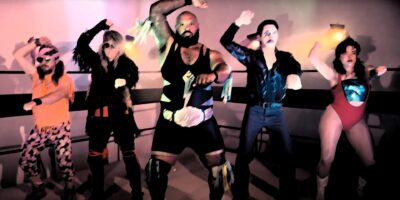
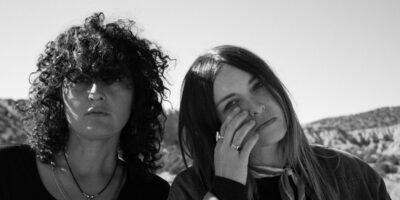
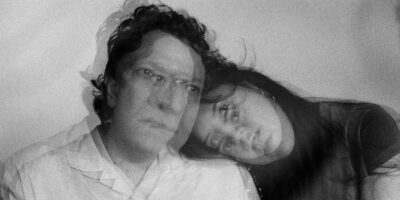
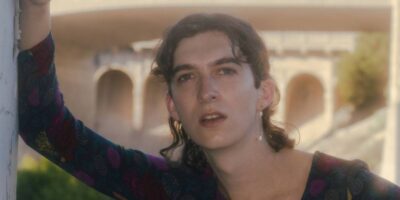




Comments